Much attention has been paid to the gastrointestinal system, or gut, in recent years. A great deal of new information has been generated regarding how important it is to good health. Research has also discovered how common digestive problems can lead to systemic illnesses not normally associated with the GI system or gut issues.
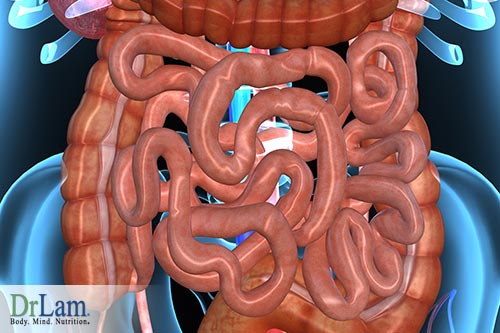 Tens of trillions of microorganisms thrive in the gut. Among those trillions are about a thousand species of bacteria, made up of over three million genes. Up to two-thirds of this gut microbiome is unique to you.
Tens of trillions of microorganisms thrive in the gut. Among those trillions are about a thousand species of bacteria, made up of over three million genes. Up to two-thirds of this gut microbiome is unique to you.
Where do all of these micro-organisms come from? In the recent past, researchers believed that the gut system was a relatively sterile environment until some time after birth. More recently, research have found this to be far from the truth.
Infants gain a great deal of their microbiota from their mothers. The environment provides the rest. The environment includes what infants eat. Babies who are breastfed get more healthy gut bacteria, bifidobacteria, than those who consume formula.
As you grow older, foods you eat and the environment in which you live have an effect on your gut microbiota and its health. The health of your gut microbiome is important to your overall health.
Your gut system produces the majority of the neurotransmitters used in your body. Some researchers say it produces up to three-fourths of those neurotransmitters. This has a great effect on your brain functioning. The gut system also holds about two-thirds of your immune system as well. This plays a major role in the health of all your body systems. Some researchers and clinicians say that up to 70% of people, in the U.S., have symptoms of some gut dysfunction or a gut disease. Let’s take a look at some of the results of these symptoms.
A 2013 study in the Journal of Cancer Research suggested a specific bacteria in the gut, lactobacillus johnsonii, may play a part in the development of lymphoma, a cancer of the white blood cells.
Another 2013 study showed H. pylori to have a role in the development of stomach cancer and duodenal ulcers. It apparently does this by inhibiting the part of the immune system that helps regulate inflammation. In addition to being linked to the development of some cancers, a more positive finding has also been reported for the gut system. The bacteria in the gut have been shown to be important in increasing the effectiveness of cancer treatments.
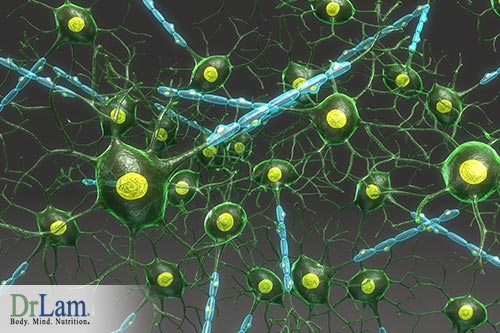 Another very interesting relationship between the gut system, and other body systems, is that which it has with the brain. Researchers have shown this relationship to be reciprocal. The gut communicates with the brain and vice-versa. The fact that the gut microbiota produces a major amount of the neurotransmitters, and 95% of the serotonin used by the body, shows how strong this gut-brain relationship is. The neurochemicals produced in the gut are used by your body to regulate memory, learning, and mood. Many people report not having issues with depression or anxiety until they start having common digestive problems with their gut. Several studies have shown a relationship between an unhealthy gut and autism. The bacteria in the gut appear to interfere with communication between the gut and the brain, inhibiting the functioning of some parts of the brain.
Another very interesting relationship between the gut system, and other body systems, is that which it has with the brain. Researchers have shown this relationship to be reciprocal. The gut communicates with the brain and vice-versa. The fact that the gut microbiota produces a major amount of the neurotransmitters, and 95% of the serotonin used by the body, shows how strong this gut-brain relationship is. The neurochemicals produced in the gut are used by your body to regulate memory, learning, and mood. Many people report not having issues with depression or anxiety until they start having common digestive problems with their gut. Several studies have shown a relationship between an unhealthy gut and autism. The bacteria in the gut appear to interfere with communication between the gut and the brain, inhibiting the functioning of some parts of the brain.
With the strong relationship between gut health and the health of the rest of the body, it’s important to look at the major categories of common digestive problems, how they develop, and what can be done about them. As we review these categories, you will clearly recognize the similarities common digestive problems have to symptoms of Adrenal Fatigue Syndrome.
One category of common digestive problems is related to absorption. Digestion is the process of breaking down foods so their nutrients can be absorbed into the bloodstream and used by the body. Normal digestion and absorption typically takes place in the small intestine. Problems may arise if something interferes with the digestion of food or the absorption of nutrients.
Digestion can be affected by disorders that inhibit the appropriate mixing of stomach acid and digestive enzymes. Enzymes are essential in breaking down food for absorption and use. Sometimes the body doesn’t produce enough. Your ability to manufacture enzymes decreases with age, leading some researchers to suggest that making more of them could result in better health and a longer life.
Other body systems use enzymes, as well. There are two primary classes of enzymes: metabolic and digestive. Digestive enzyme include proteases to digest proteins, amylases to digest carbs, and lipases to digest fats. Raw foods have some enzymes of their own that naturally break down foods.
Metabolic enzymes structure, repair, and remodel every cell in your body. Your body is under constant pressure to supply sufficient enzymes. These metabolic enzymes are in need of constant replenishment because they are literally in every cell, organ, and tissue of your body.
Digestion also has a high need for enzymes. The activity of enzymes begins in the mouth when you eat. Salivary amylase, lingual lipase, and ptyalin start the digestion of starches and fat. Then pepsinogen is converted to pepsin by the hydrochloric acid in your stomach. This enzyme begins breaking down protein, and gastric lipase starts the hydrolysis of fats. Most of the digestive enzymes are provided by the pancreas and liver. The other enzymes needed for digestion should come from uncooked foods like fruits and vegetables, raw sprouted grains, nuts, and unpasteurized dairy products.
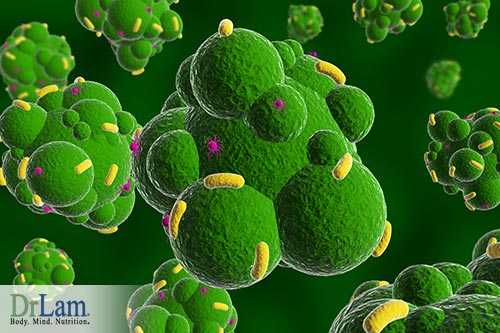 Once food is digested, the next step is absorption. This is the process whereby nutrients, from your food, are absorbed into the bloodstream to be used by the body. If you don’t absorb nutrients well, you’re going to experience nutritional deficiencies.
Once food is digested, the next step is absorption. This is the process whereby nutrients, from your food, are absorbed into the bloodstream to be used by the body. If you don’t absorb nutrients well, you’re going to experience nutritional deficiencies.
Some reasons for poor absorption include: an intestinal mucosal barrier that is damaged, the lack of certain enzymes, insufficient circulation of bile and other acids, insufficient detoxification, and infections or parasites. If you don’t have good nutrient absorption, you’re at greater risk for chronic inflammatory diseases and sensitivities. Malabsorption problems can be caused by illnesses that attack the lining of the small intestine.
Normally, small projections called villi and microvilli form a large surface area for absorption of nutrients. Infections, some drugs like tetracycline, alcohol, celiac disease, and Crohn’s disease all damage the lining of the small intestine. Conditions that hamper the flow of lymphatic fluid from the bowel into the bloodstream can inhibit absorption. Some of these conditions are malformations of intestinal lymph vessels, blockages of lymph due to lymphoma, or some heart disorders that slow the entry of lymph fluid into the bloodstream. Malabsorption symptoms are caused by unabsorbed nutrients going through the digestive tract. At some point, signs of nutritional deficiencies will also show up. Chronic diarrhea may be the most prominent symptom of malabsorption. Abdominal bloating and flatulence may also be seen.
Deficiencies can be for all nutrients or selective for proteins, fats, sugars, minerals, or vitamins. People who suffer from these deficiencies may lose weight or not be able to maintain weight in spite of eating sufficient amounts of food. Menstruation may stop. Swelling and fluid retention may occur if proteins are not absorbed. Vitamin or iron malabsorption may result in weakness and fatigue.
Another category of common digestive problems is related to inflammation and the immune system. Eighty percent, or more, of your immune system is in your gut. This makes the health of your gut extremely important. If your gut is healthy, your immune system is also healthy. The reverse is also true.
Inflammation gets its start in the gut system. An autoimmune reaction begins and progresses into, system-wide inflammation. With these two things in mind, it’s easy to see how interrelated your gut, inflammation, and immune system can be.
How does the immune system become activated leading to inflammation? To begin with, consider this: Your gut has an extremely large and complex semi-permeable lining. It is made up of mucosal epithelial cells aligned closely together. The degree of permeability varies due to chemical influences, infections, stress, and some other factors. If you’re under stress and your adrenals are secreting cortisol, the stress-fighting hormone, your gut becomes more permeable.
When you eat and are stressed, undigested food, toxins from food additives, yeast, viruses, and bacteria are allowed to pass through the mucosal barrier. These substances then get into your bloodstream. This process is called leaky gut syndrome. If these substances continue to pass through the barrier, and your intestinal lining continues to be damaged, the microvilli in your gut will also be damaged and unable to do their work. These microvilli aid in absorption of nutrients from your food. Over a period of time, your digestive system’s effectiveness decreases and you begin showing signs of nutritional deficiency. With continued common digestive problems, your immune system begins viewing the substances, leaking out, as foreign substances. This sets in motion the normal response of inflammation, allergic reactions, and symptoms of various diseases. If this continues, your immune system becomes overwhelmed and the inflammation from these substances circulates throughout your body. In this process, the inflammation will affect your organs, joints, nerves, muscles, and connective tissues, resulting in chronic diseases.
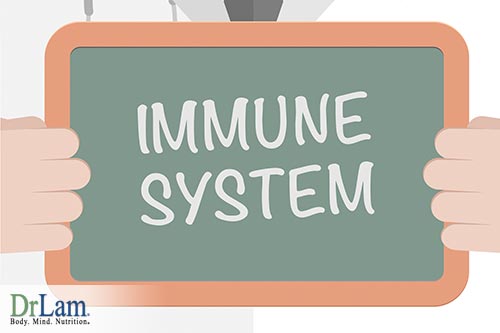 This is the process through which the increased permeability of your gut can lead to a multitude of very significant medical conditions. All of these conditions are a result of your immune system treating substances within your body, i.e. foods, the same as it does bacteria or viruses that enter your body from outside it. This process is called autoimmunity.
This is the process through which the increased permeability of your gut can lead to a multitude of very significant medical conditions. All of these conditions are a result of your immune system treating substances within your body, i.e. foods, the same as it does bacteria or viruses that enter your body from outside it. This process is called autoimmunity.
Stress is a very significant trigger for this kind of autoimmune response to occur. When you push yourself over the limit of what you can handle on the job, don’t get enough quality sleep, and don’t eat the right kinds of foods, you certainly will have increased permeability of your gut. This will allow food products, like serum protein particles, to leak through into your bloodstream. Symptoms, no one suspects of originating in the gut, develop, like brain fog, fatigue, poor sleep, anxiety, and endocrine dysfunction. Part of the reason for these symptoms is the formation of cytokines, inflammatory chemicals that severely hamper brain function. Researchers have found evidence of cytokines in severe conditions like Parkinson’s disease, Alzheimer’s, M.S., and autism.
The substances involved in leaky gut syndrome can stimulate your immune system response for up to five days after you eat them. Some of the more common foods, containing these substances, are corn, dairy, soy, and gluten. Even a small amount of these food triggers can over-stimulate your immune system, and you’ll feel your symptoms constantly, even if you’ve tried to eliminate the foods. This is one reason it is difficult to pinpoint food allergies.
Researchers and clinicians have found that once the specific foods, causing leaky gut, are isolated, you can gain sufficient control over conditions like eczema, allergies, and inflammatory conditions. One way of doing this is to balance the bacteria found in your gut system.
When the bacteria in your gut consists of about 75% healthy bacteria, your body can create balance. But if the bacteria are more harmful, you can have an overgrowth of yeast, molds, and fungus in your gut. This can lead to common digestive problems such as: bloating, gas, pain, constipation, diarrhea, and leaky gut. So it’s important to understand the causes of your common digestive problems and re-balance your gut. Eat whole and unrefined foods. Eliminate sugars and grains that feed your unhealthy gut bacteria. Eat naturally fermented foods every day and take probiotic supplements. These supplements contain beneficial bacteria that will then re-populate your healthy gut bacteria.
 Keep in mind the fact that inflammation is everywhere. Currently, researchers estimate that 1 in 12 women and 1 in 24 men are dealing with inflammation caused by an autoimmune response. These numbers represent those who are diagnosed with this kind of condition. The number of undiagnosed sufferers may be much higher.
Keep in mind the fact that inflammation is everywhere. Currently, researchers estimate that 1 in 12 women and 1 in 24 men are dealing with inflammation caused by an autoimmune response. These numbers represent those who are diagnosed with this kind of condition. The number of undiagnosed sufferers may be much higher.
Diet is not typically considered a trigger for these autoimmune responses in the initial phases of the condition. Other factors, not closely aligned with diet, may be the triggers. However, diet becomes a secondary trigger as the condition continues. Once again, stress plays a major role in initiating the autoimmune response. It appears to trigger immune marker IL6 which then activates immune pathway TH7, setting you on the way to an autoimmune response. Getting adequate sleep, exercising appropriately, balancing blood sugar levels, and keeping your attitude positive will begin the process of restoring the balance you need in your gut. These changes will promote natural systemic opioids that stimulate immune pathway TH3 and reduces the autoimmune response.
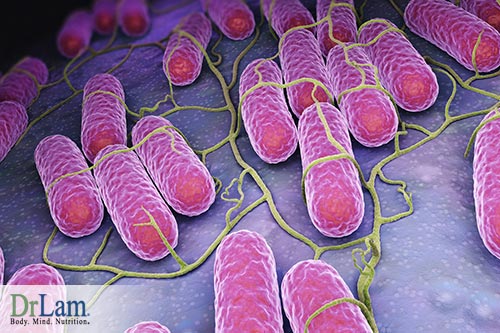 A third category of common digestive problems involves your gut microbiota and dysbiosis. The gut microbiota has several important functions. One of these is metabolic in nature. The healthy bacteria in your gut ferments food and food products that aren’t digestible. This process releases short chain fatty acids (SCFAs) and vitamin K. Another function is trophic. These SCFAs then aid in the growth of epithelial cells, and their differentiation in the colon, where they serve to protect against the development of cancers. Another function of microbiota is protective. Bacteria that live in your gut resist the growth of microbes that could be pathogenic.
A third category of common digestive problems involves your gut microbiota and dysbiosis. The gut microbiota has several important functions. One of these is metabolic in nature. The healthy bacteria in your gut ferments food and food products that aren’t digestible. This process releases short chain fatty acids (SCFAs) and vitamin K. Another function is trophic. These SCFAs then aid in the growth of epithelial cells, and their differentiation in the colon, where they serve to protect against the development of cancers. Another function of microbiota is protective. Bacteria that live in your gut resist the growth of microbes that could be pathogenic.
When your gut maintains a balance of healthy and unhealthy bacteria, it’s said to be in a state of symbiosis. Dysbiosis occurs when this symbiotic relationship is upset. This imbalance can result from an overabundance of good bacteria or when you have an overgrowth of unhealthy bacteria. Your nutrition suffers when this happens. Organisms such as yeast or protozoa can cause disease by inhibiting nutritional patterns. The clinical term for this pattern of imbalance is Small Intestinal Bacterial Overgrowth (SIBO). It indicates that gut bacteria from the colon has migrated back into the small intestine.
Why is dysbiosis a problem? A great deal of evidence shows this imbalance to be involved in several disorders both inside and outside the intestines. The mechanism that eventually leads to the development of disease involves a mutual relationship between the bacteria in the colon, their metabolic products, and your immune system.
A healthy relationship among these factors isn’t completely understood yet. Research is ongoing to determine specific bacteria associated with a healthy gut microbiota. These specific bacteria, through communication with your host cells, determine whether a good balance of bacteria in your gut is achieved or whether your immune system will be triggered causing inflammation.
Dysbiosis may be involved in, or be the cause of, some significant illnesses. For example, changes in your gut bacteria may be a part of the development of colorectal cancer. In this case, the dysbiosis itself may not be the most important causal factor. The interaction between diet and your gut microbiome may play a greater role. Diets high in protein may result in carcinogenic metabolites from the bacteria in your colon, leading to the growth of neoplasia in the colonic epithelium.
Other common digestive problems, that may be traced back to dysbiosis, of your gut microbiome, include irritable bowel syndrome, celiac disease, and inflammatory bowel disease. Those conditions that don’t seem to be related to your gut include metabolic syndrome, asthma, cardiovascular disease, and obesity.
Some of the most common factors that lead to imbalance include stress, poor diet, a lack of sufficient nutrients, frequent antibiotic therapy, a suppressed immune system (often caused by emotional stress), intestinal infections, and parasites.
Another category of common digestive problems is intestinal permeability. Under normal conditions, your gut microbiome is protected by a layer of mucosal epithelial cells held together by proteins that form junctions between these cells. The food you digest passes into and through the epithelial cells where the nutrients then are absorbed into the bloodstream for your body’s use.
These tight junctions formed by the proteins prevent other substances from getting into your body through the bloodstream. But, things can happen to open up these tight junctions. When this happens, foreign bacteria, undigested molecules of food, and toxins from the environment gain access to your bloodstream.
Your body’s immune system begins to recognize these substances as foreign and attack them through an exaggerated immune response. This sets up your system for an increase in inflammation that gets into your bloodstream. A cycle of inflammation leading to more damage to your gut system, more foreign molecules in your system, more immune response, is then set in motion. The ultimate result is autoimmune disease.
 Along the way to autoimmune diseases, you can experience common digestive problems such as bloating, food allergies or sensitivities, malnutrition, and dysbiosis. On the other hand, you may not have digestive problems, but rather experience symptoms such as brain fog, fatigue, and depression. You can recognize this triad of symptoms as being the same as some of those experienced by a person with adrenal fatigue or Adrenal Fatigue Syndrome (AFS).
Along the way to autoimmune diseases, you can experience common digestive problems such as bloating, food allergies or sensitivities, malnutrition, and dysbiosis. On the other hand, you may not have digestive problems, but rather experience symptoms such as brain fog, fatigue, and depression. You can recognize this triad of symptoms as being the same as some of those experienced by a person with adrenal fatigue or Adrenal Fatigue Syndrome (AFS).
One of the more serious issues with common digestive problems, of intestinal permeability, is malabsorption. The inability to successfully absorb nutrients is a significant step toward becoming malnourished. This occurs because the inflammation that is caused by peptides leaking through junctions, among the epithelial cells in your gut, causes mucus to develop. This mucus makes it harder for small micronutrient molecules to pass through to the bloodstream.
Another significant issue with this category of common digestive problems is the development of infections in your gut. These infections are caused by imbalances in acidity and a lack of healthy bacteria in the gut. The most common of these types of infections is H. pylori.
The chronic, low-level kind of inflammation, generated by this category of common digestive problems, is a major factor in the development of many chronic health conditions. It contributes to heart disease, cancer, Type 2 diabetes, various skin conditions, and gastrointestinal problems. A significant problem associated with this category of common digestive problems is that of damage to the gut wall’s ability to detoxify environmental toxins and toxins derived from certain foods. This will lead to an overburden on the liver and new chemical sensitivities.
You can also experience decreased defense against unhealthy bacteria, protozoa, viruses, and yeasts due to inhibition of the gut’s immune globulin coating. This can lead to increased infections because bacteria and yeasts find their way out of the gut where they can’t be controlled. The Standard American Diet (SAD) and stress are two of the major causes of leaky gut. Stress by itself can cause leaky gut by decreasing blood flow to the gut system, essentially starving it. SAD also leads to intestinal permeability problems. Consuming trans fats, fried foods, deamidated gliadin, and processed foods, on a daily basis, sets up the gut for permeability problems. Combine this with alcohol consumption, and the risk multiplies for the development of leaky gut.
Other dietary culprits involved in the formation of problems in this category, of common digestive problems, include the consumption of sugars and the regular intake of caffeine and soft drinks.
Medicinal causes of leaky gut include anyone who has been treated with antibiotics. This automatically insures the imbalance of gut flora due to the indiscriminate killing of bacteria by the medication.
 A counter-intuitive reason for the conditions, that lead to the development of inflammation, is taking “anti-inflammatory” medications. Non-steroidal anti-inflammatory drugs, or NSAIDs, are non-prescription medicines used to help people deal with the pain of arthritis, chronic back pain, migraines, gout, and pain associated to menstruation. Even though these medications relieve inflammation in other parts of the body, they interfere with prostaglandin production and affect the gastrointestinal mucus. This leads to attacks on your gut wall by acid and enzymes.
A counter-intuitive reason for the conditions, that lead to the development of inflammation, is taking “anti-inflammatory” medications. Non-steroidal anti-inflammatory drugs, or NSAIDs, are non-prescription medicines used to help people deal with the pain of arthritis, chronic back pain, migraines, gout, and pain associated to menstruation. Even though these medications relieve inflammation in other parts of the body, they interfere with prostaglandin production and affect the gastrointestinal mucus. This leads to attacks on your gut wall by acid and enzymes.
There are nutritional factors that aid in the support of good mucosal health and boost normal intestinal permeability. Some of these factors are antioxidants, probiotics, digestive enzymes, dietary fiber, and mucosal nutrients. Some of these nutrient products help to alleviate damage done by leaky gut syndrome.
The next category of common digestive problems is that related to the nervous system. We have all experienced a flare-up of stomach problems when we’re stressed. It’s clear that the nervous system has an effect on your gut system. Sometimes it is more apparent when you feel one of the “negative” emotions like anxiety or depression. It isn’t clear whether your emotions cause common digestive problems, but they certainly affect them. Anxiety is one of the most common mental disorders, and the one that seems to have the most effect on the digestive system.
Once you experience anxiety, your brain sets your body into the “fight or flight” mode, taking energy away from certain parts of the body, to send to your muscles and hormone system. The energy required by your gut system, to encourage healthy digestion, is not as necessary under stressful conditions. Ordinarily, since anxiety is supposed to be a temporary condition, you might not even know you have any common digestive problems. But, in our stress-filled world, your body doesn’t have time to recover from one anxiety situation before another has developed. Thus, you end up with significant stomach issues.
In the case of anxiety, you can see a mutual relationship between stomach issues and anxiety in another way. For example, indigestion can cause discomfort and pain, both of which can lead to anxiety. Gas can lead to chest pain which typically brings on anxiety. Any kind of long term discomfort can bring on anxiety, which then can lead to increased indigestion and poor nutrition.
In the same way, neurotransmitters like serotonin can alter your mood and affect your stomach. Low serotonin can cause anxiety, and anxiety can lower serotonin. Since your gut system produces much of the serotonin in your body, low levels can lead to any number of common digestive problems.
Researchers have found a close communication between your brain and your gut system. This function of your gut system is called the enteric nervous system. There is a close communication between these two organ systems, causing scientists to coin the enteric nervous system your “second brain”. Your second brain contains more than 100 million neurons, more than your spinal cord or your peripheral nervous system. This second brain, working along with the one in your head, influences your mental state and has an effect on certain diseases in other parts of your body.
It may be that your second brain plays a major role in influencing your moods. One example would be the feeling of “butterflies” in your gut. This appears to be a part of your stress response mechanism. Moods of all kinds can be significantly influenced by your gut system through communication between gut and brain (by way of the vagus nerve).
 Some medications used to alleviate depression also have a detrimental effect on your gut system. Ninety-five percent of the neurotransmitter, serotonin, is found in your gut. A type of medication used to help with depression, selective serotonin reuptake inhibitors (SSRIs), increases serotonin and decreases the symptoms of depression. Unfortunately, irritable bowel syndrome is often caused by increased levels of serotonin in the gut system.
Some medications used to alleviate depression also have a detrimental effect on your gut system. Ninety-five percent of the neurotransmitter, serotonin, is found in your gut. A type of medication used to help with depression, selective serotonin reuptake inhibitors (SSRIs), increases serotonin and decreases the symptoms of depression. Unfortunately, irritable bowel syndrome is often caused by increased levels of serotonin in the gut system.
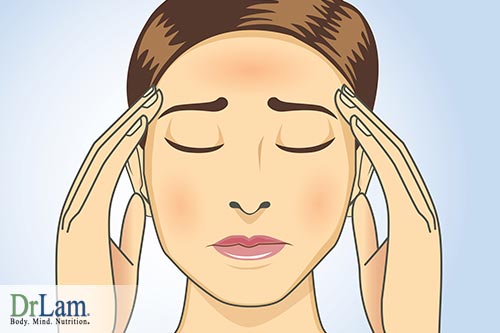 Many of the symptoms noted with these common digestive problems are the same as or similar to those of AFS. AFS is the constellation of, sometimes vague, symptoms that occur as a result of your body’s natural response to stress. When stress from any source comes into your life, your body reacts in the same way every time. The hypothalamic-pituitary-adrenal (HPA) axis is activated, leading ultimately to the adrenal glands secreting cortisol, the stress-fighting hormone. If stress continues, as it so frequently does in our society, your adrenals continue to secrete cortisol until they reach the stage of adrenal exhaustion. Once this happens, significant symptoms surface. Mental confusion, insomnia, gastrointestinal symptoms, food allergies, feeling sleepy but unable to sleep, lack of energy, fatigue, memory problems, and depression and anxiety. These symptoms are very much like those of common digestive problems such as leaky gut.
Many of the symptoms noted with these common digestive problems are the same as or similar to those of AFS. AFS is the constellation of, sometimes vague, symptoms that occur as a result of your body’s natural response to stress. When stress from any source comes into your life, your body reacts in the same way every time. The hypothalamic-pituitary-adrenal (HPA) axis is activated, leading ultimately to the adrenal glands secreting cortisol, the stress-fighting hormone. If stress continues, as it so frequently does in our society, your adrenals continue to secrete cortisol until they reach the stage of adrenal exhaustion. Once this happens, significant symptoms surface. Mental confusion, insomnia, gastrointestinal symptoms, food allergies, feeling sleepy but unable to sleep, lack of energy, fatigue, memory problems, and depression and anxiety. These symptoms are very much like those of common digestive problems such as leaky gut.
With the lack of cortisol and other hormones associated with stress, your body becomes less likely to handle stress. Cortisol is also an anti-inflammatory agent. With lowered levels of this hormone, inflammation increases. Add this to the inflammation caused by leaky gut, and the risk of developing chronic health conditions increases dramatically.
Cortisol also weakens the immune system. It inhibits white blood cells, natural killer cells, and other cells associated with a strong immune system. This increases your risk of contracting an infection. Combined with risk of systemic infections with leaky gut, a weakened immune system can be extremely serious. At the ultimate end of AFS, your body begins shutting down.
When dealing with any of the categories of common digestive problems, traditional medicine falls short. Most conventional physicians will address symptoms alone or, at most, single organ systems. This is not a comprehensive approach to handling the root issue behind the inflammation, that is a foundation of autoimmune diseases. Controlling symptoms is helpful, but not healing. Prescribing medications that suppress the inflammatory process is designed to reduce inflammation. But, they don’t take on the root problem. Your body continues to deteriorate until that root problem is addressed.
The NEM Model goes directly to one or more of the six circuits that work to regulate stress. Each of these circuits is regulated by a set of organs in your body. These circuits interact with each other. What affects one, affects the others.
In the case of leaky gut, the metabolic system is likely the first one affected. Stress leads to the mechanisms that develop into leaky gut. Then, when the foreign products seep out of the gut, the inflammatory system is triggered. With inflammation comes a decrease in detoxification efforts. The liver, pancreas, and other organs involved with detox in your body work less efficiently in this case. Toxic reactive metabolite buildup occurs. As we have seen already, the neuroaffective system is affected by, and affects in turn, the metabolic system. This is the kind of cycle seen with the NEM model of stress. Healthcare practitioners who understand this model can construct natural ways to deal with the effects of leaky gut.
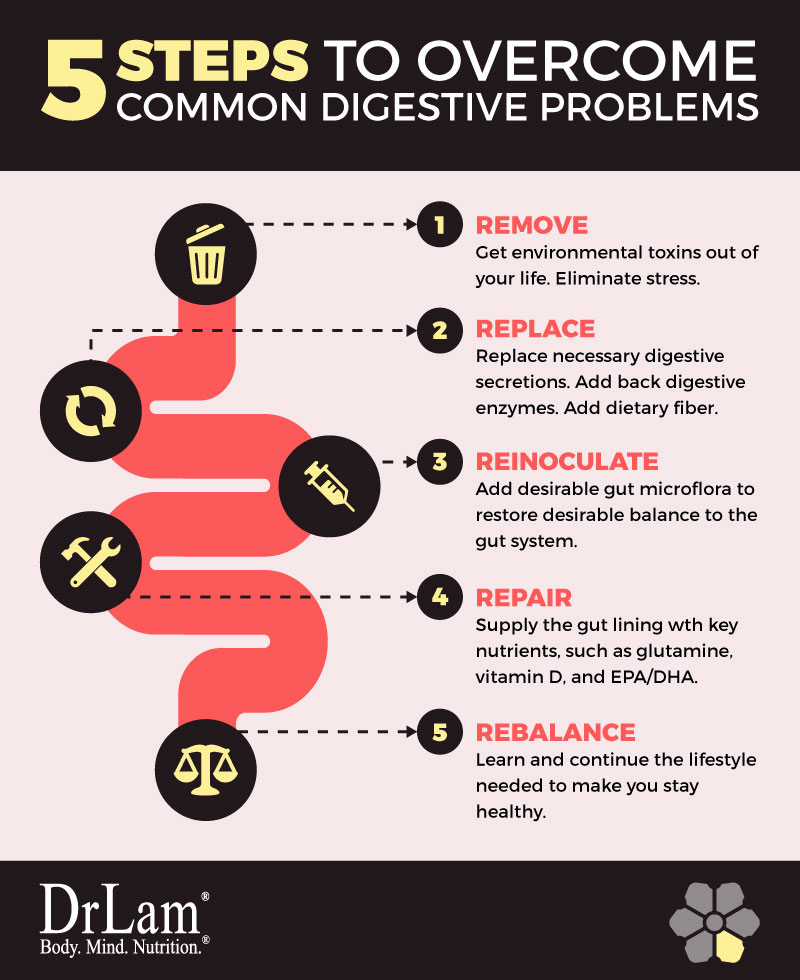
There is a program called the 5R Program. It is designed specifically to deal with the root causes of common digestive problems like leaky gut and the attendant chronic disease conditions that come with it. This program may take three to six months to complete. You must make the commitment to stay with it over that span of time.
 Step number one is REMOVE. Get the environmental toxins, lifestyle issues, and pathogens, responsible for the initiation of leaky gut, out of your life. Use the natural substances needed to eliminate pathogens from your life. Another part of this step is to avoid the foods you are sensitive to, allergic to, or intolerant of. Get environmental toxins out of your life. This would include molds, chemicals that seep into your air, genetically modified foods, etc. Eliminate stress. This may be the more difficult part of this step, considering all of the stressors prevalent in the world. Learn what you need to do to prevent or deal with stress most adequately. You will probably want to try an elimination diet that will pinpoint specific foods to which you’re allergic or intolerant.
Step number one is REMOVE. Get the environmental toxins, lifestyle issues, and pathogens, responsible for the initiation of leaky gut, out of your life. Use the natural substances needed to eliminate pathogens from your life. Another part of this step is to avoid the foods you are sensitive to, allergic to, or intolerant of. Get environmental toxins out of your life. This would include molds, chemicals that seep into your air, genetically modified foods, etc. Eliminate stress. This may be the more difficult part of this step, considering all of the stressors prevalent in the world. Learn what you need to do to prevent or deal with stress most adequately. You will probably want to try an elimination diet that will pinpoint specific foods to which you’re allergic or intolerant.
Step two is REPLACE. In this step, you’re replacing necessary digestive secretions. You’ll add back digestive enzymes, to include hydrochloric acid and enzymes found in the pancreas. These are all secretions that are affected by age, stress, diseases, and medications. You will also be adding dietary fiber to support elimination and overall gastrointestinal functioning.
Step three is REINOCULATION. You will be adding desirable gut microflora to restore desirable balance to your gut system. This reintroduction will include Bifidobacteria, lactobacillus, and saccharomyces to fight against yeast infections. Some of the foods you can add to your diet include onions, tomatoes, asparagus, fruits and vegetables, and soy fiber. You’ll also add more soluble fiber to your diet. Prebiotics to feed healthy bacteria and probiotics that contain these healthy bacteria.
Step four is REPAIR. You’ll supply the key nutrients the gut lining needs to make itself over again in the most beneficial way. Nutrients like glutamine, vitamin D, and EPA/DHA are helpful for this.
Step five is REBALANCING. Learn and continue the lifestyle choices you need to make in order to stay healthy. Part of this is mindful eating. Take time to enjoy and appreciate your food. Engage in relaxation, mindfulness, meditation, prayer, yoga, or some other equally relaxing activity you enjoy.
The major mechanism behind most common digestive problems is leaky gut syndrome. This occurs when food molecules, viruses, bacteria, and toxins seep through the gut lining and invade the bloodstream. This leads to significant problems with inflammation and resulting systemic conditions.